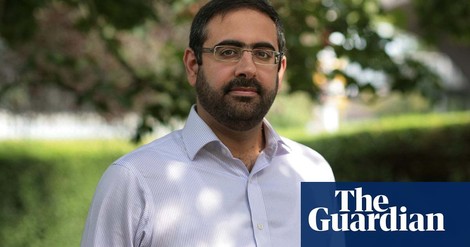Your podcast discovery platform
Curious minds select the most fascinating podcasts from around the world. Discover hand-piqd audio recommendations on your favorite topics.

piqer for: Boom and bust Global finds
I am a Dutch journalist, writer and photographer and cover topics such as human rights, poverty, migration, environmental issues, culture and business. I’m currently based in The Hague, The Netherlands, and frequently travel to other parts of the world. I have also lived in Tunisia, Egypt, Kuwait and Dubai.
My work has been published by Al Jazeera English, BBC, The Atlantic's CityLab, Vice, Deutsche Welle, Middle East Eye, The Sydney Morning Herald, and many Dutch and Belgian publications.
I hold an MA in Arabic Languages and Cultures from Radboud University Nijmegen and a post-Master degree in Journalism from Erasmus University Rotterdam. What I love most about my work is the opportunities I get to ask loads of questions. Email: [email protected]
One Man's (Very Polite) Fight Against Islamophobia
“News about Muslims in the British press is rarely positive, but it is never scarce”, we hear at the beginning of this podcast. “No other community in Britain receives such regular torrents of bad press.”
This is, of course, the same in many other countries too, including the Netherlands, where I live.
Miqdaad Versi is “an amiable, animated, sartorially rumpled man who has made it his personal mission to confront, very patiently and politely, the Islamophobia of the British press.”
He created an Excel spreadsheet with a long list of fabrications he found about Muslims in the British press.
They were not just lightly dotted with inaccuracies. The chief premise of each piece — the premise articulated in the headline — was dead wrong.
He lodged formal objections to the errors in each of these articles with the Independent Press Standards Organisation (Ipso), a regulator whose rulings most British publications have agreed to abide by.
The articles included the gratuitous identification of criminals — welfare cheats, say, or sexual assaulters — as Muslim, even when their religion has no bearing on their crime. It includes misquotes of Muslim figures of authority and elisions of fact that portray the Muslim community as dogmatic and unknowable.
Two of the three most common themes were terrorism and religious extremism. The third, pertaining to cultural aspects of Islamic life, obsessed over veils, Sharia law and forced marriages.
Five of the most common nouns used in conjunction with British Muslims were “terrorist”, “extremist”, “cleric”, “Islamist” and “suicide bomber”. The most frequent adjectives were “radical”, “fanatic”, “fundamentalist”, “extremist” and “militant”.
Versi knows the limits of what he can achieve.
In the social media age, what use is a small apology on page 30 for a month-old article? How can these piecemeal repairs hope to transform the culture of the media itself?
Stay up to date – with a newsletter from your channel on Global finds.
